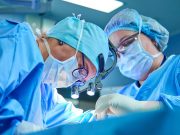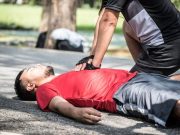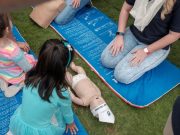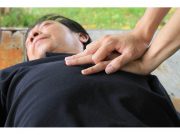Tag: CPR
Frailty Tied to Worse Outcomes After Perioperative Cardiac Arrest
Findings show higher risk of mortality and nonhome discharge with increasing frailty
Athlete Awareness of Sudden Cardiac Arrest Low
Furthermore, only half of athletes report receiving cardiopulmonary resuscitation training
Schoolchildren Should Learn Basic Life Support
First links in chain of survival can be assessed by children from age 4; regular training in basic life support consolidates long-term skills
Extracorporeal CPR Does Not Offer More Favorable Neurologic Outcome
No benefit seen versus conventional CPR for patients with out-of-hospital cardiac arrest who received bystander CPR
Poll Finds Nearly Half of Americans Unprepared for Medical Emergency
While 76 percent felt comfortable calling 911, only 55 percent knew hands-only CPR
AHA: Consciousness, Awareness May Occur During Cardiac Arrest
Normal EEG consistent with consciousness emerged as long as 35 to 60 minutes into CPR despite marked cerebral ischemia
Blacks, Hispanics Less Likely Than Whites to Receive Bystander CPR
Incidence of bystander CPR lower for Blacks and Hispanics in predominantly White, predominantly Black or Hispanic, integrated neighborhoods
Four in 10 U.S. Adults Not Comfortable Performing CPR
Lack of training, fear of hurting someone, and legal consequences are top reasons cited for not performing CPR
Bystander Rescue Breathing CPR Beneficial for Pediatric OHCA
Odds of neurologically favorable survival improved for RB-CPR versus compression-only CPR
Discharge to Survival After Out-of-Hospital Cardiac Arrest Lower for Women
Among patients who were not made DNR and did not have withdrawal of life-sustaining therapy, women had lower discharge survival














